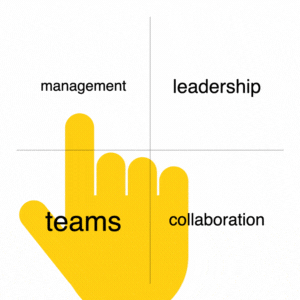Managing Teams Effectively: Strategies for Peak Performance

Effective team management is paramount in today’s fast-paced and ever-evolving business environment. It’s the driving force behind successful projects, optimized performance, and a thriving organizational culture. Navigating the complexities of team dynamics can be challenging, but with the right strategies, you can lead your team to peak performance. This article will delve into practical strategies for managing teams effectively, focusing on managing teams remotely and managing team tasks.
Understanding the Basics of Team Management
Team management involves coordinating, leading, and organizing a group of individuals toward a common goal. Effective management considers each team member’s strengths, weaknesses, and roles, ensuring that everyone is working collaboratively and efficiently. It’s not just about completing tasks on time; it’s about fostering a positive environment where everyone feels valued and empowered to contribute their best.

Managing Teams Remotely
The rise of remote work has created new challenges in team management. Leading a team scattered across different locations – sometimes even time zones – requires a unique approach. Here are some strategies to consider:
- Regular Communication: Establish regular check-ins via video conferencing or phone calls. This lets you stay informed about ongoing tasks and allows team members to voice their concerns or ideas.
- Trust and Flexibility: Remote work requires a high level of trust. Respect your team’s autonomy and flexibility, understanding that traditional 9-5 schedules may not be the most productive for everyone.
- Use of Technology: Leverage tools and platforms to streamline communication and task management. Tools like Slack, Asana, and Zoom are invaluable for remote team management.
- Creating a Remote Work Culture: A healthy team culture is critical and is no different for remote teams. Despite geographical distances, strive to create a sense of unity and belonging among team members. Organize virtual team-building activities, celebrate achievements together, and encourage casual conversations. This strengthens relationships and boosts morale, which in turn, fosters productivity and collaboration.
- Managing Performance and Accountability: In a remote setting, measuring performance can be more challenging, yet it’s vital to ensure accountability. Set clear expectations and use key performance indicators (KPIs) to track and measure your team’s progress. Provide constructive feedback and recognize outstanding work to keep your team motivated. With the right management techniques, remote teams can thrive, delivering impressive results while enjoying remote work’s flexibility.
Manage Team Tasks
Effectively managing team tasks is crucial in ensuring productivity and preventing burnout. Here are some key strategies:
- Prioritization: Not all tasks are created equal. Use a prioritization system, like the Eisenhower Matrix or the ABCDE method, to help your team focus on the most important and urgent tasks.
- Delegation: As a manager, you can’t – and shouldn’t – do everything yourself. Assign tasks based on your team member’s skills and strengths. This not only makes the workload manageable but also empowers your team by showing trust in their capabilities.
- Use of Task Management Tools: Utilize tools that allow you to assign, track, and manage tasks effectively. Trello, Asana, and Monday.com are examples of popular task management tools.
In summary, managing team tasks effectively is a vital skill that improves productivity and reduces team burnout. Prioritizing tasks using proven systems, delegating work based on individual strengths, and leveraging the power of task management tools are all crucial strategies to achieve this. However, it’s equally important to remember that the human element is at the heart of task management. Regularly checking in on team members, acknowledging their efforts, and fostering an environment that encourages open communication can significantly enhance task management effectiveness. In doing so, managers streamline operations and build a culture of trust and mutual respect, leading to a more engaged and high-performing team.
Conclusion
As we venture further into this digital age, the ability to manage teams effectively – whether in-person, remotely, or a hybrid of both – becomes an increasingly valuable skill. The strategies outlined above, from fostering regular communication to utilizing task management tools, provide a starting point for your leadership journey. But they are just that – a starting point. The art of team management evolves, adapting to the unique needs of your team and the dynamic nature of the business landscape.
In this regard, continuous learning and adaptation are integral to effective team management. Stay informed about the latest technology and tools that can streamline your processes. Engage actively with your team to better understand their needs and challenges. Above all, lead with empathy and an open mind. Your team is your greatest asset, and understanding their perspectives is crucial to creating a collaborative and productive environment.
Moreover, as you navigate the challenges of managing team tasks and remote work, don’t lose sight of the bigger picture – the ultimate goal is not just to get work done but to build a high-performing team that thrives on mutual trust, respect, and shared goals.
Remember that the strength of your team lies in its diversity – different people bring different skills, ideas, and experiences to the table. Embrace this diversity, and leverage it to drive innovation and performance.
Ultimately, effective team management is about more than productivity and task completion. It’s about fostering a culture where every team member feels valued, heard, and motivated to do their best. It’s about building a team that is successful in achieving its goals and supportive and resilient in the face of challenges.
As a leader, your role is pivotal in shaping this culture. Your actions and decisions set the tone for your team’s dynamics. So lead authentically, foster a sense of community, and strive to create an environment where everyone can flourish. When you do this, you’ll manage your team effectively and inspire them to reach new heights of success.

